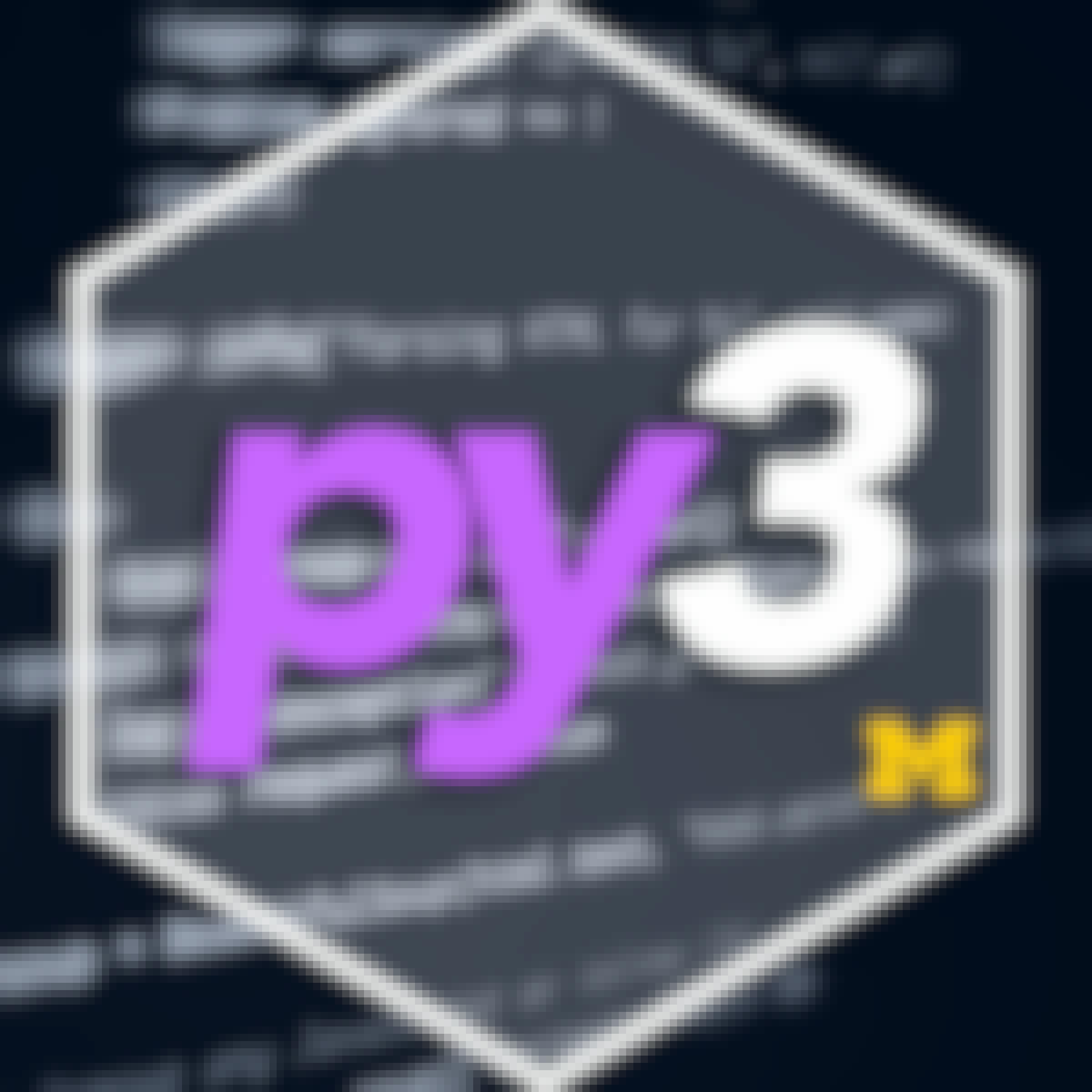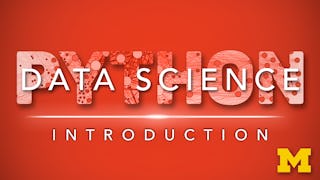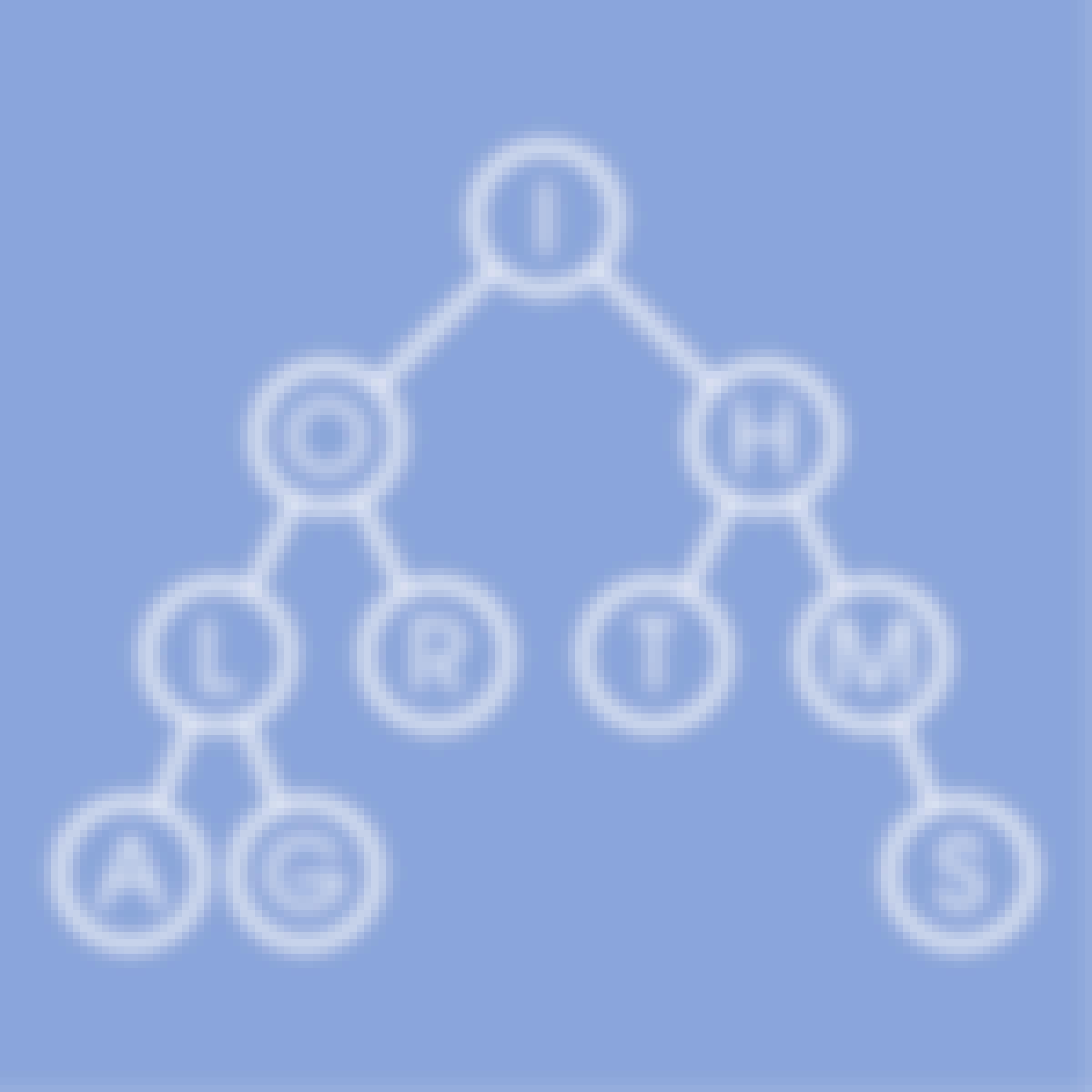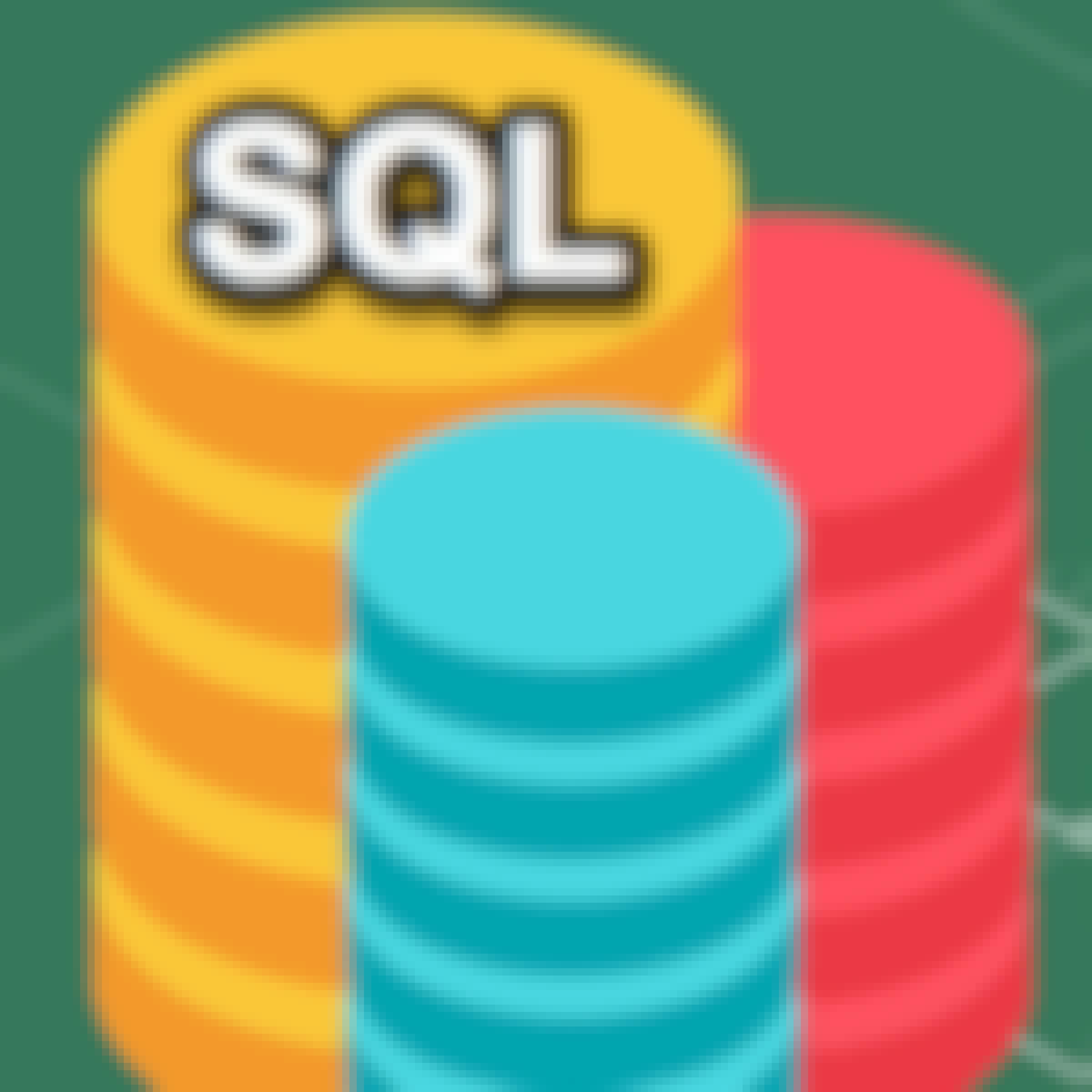Filter by
SubjectRequired
LanguageRequired
The language used throughout the course, in both instruction and assessments.
Learning ProductRequired
LevelRequired
DurationRequired
SkillsRequired
SubtitlesRequired
EducatorRequired
Explore the Socket Programming Course Catalog

University of Michigan
Skills you'll gain: Debugging, Programming Principles, Python Programming, Data Structures, Scripting Languages, Computer Programming, Pseudocode, Computer Graphics

University of Amsterdam
Skills you'll gain: Qualitative Research, Statistical Hypothesis Testing, Scientific Methods, Descriptive Statistics, Statistical Inference, Statistical Analysis, Statistical Software, Probability Distribution, Research, Correlation Analysis, Research Design, Sampling (Statistics), Research Reports, Science and Research, Probability, Interviewing Skills, Data Analysis, Sample Size Determination, Statistical Methods, Social Sciences

University of Michigan
Skills you'll gain: Pandas (Python Package), Jupyter, NumPy, Data Manipulation, Data Science, Data Structures, Data Analysis, Statistical Analysis, Pivot Tables And Charts, Data Cleansing, Data Import/Export, Probability & Statistics, Python Programming, Programming Principles

Skills you'll gain: Prompt Engineering, ChatGPT, Generative AI, Interactive Data Visualization, Business Intelligence, Data Presentation, Infographics, OpenAI, Dashboard, Data Storytelling, Large Language Modeling, Artificial Intelligence, Program Development, SQL, Data Analysis, Image Analysis, Content Creation, Business Ethics, Virtual Environment, Natural Language Processing
 Status: AI skills
Status: AI skillsSkills you'll gain: Git (Version Control System), Software Development Methodologies, JUnit, Requirements Analysis, Version Control, Application Development, Software Development Life Cycle, SQL, Full-Stack Web Development, Test Driven Development (TDD), Systems Development, Software Development, Restful API, Object Oriented Programming (OOP), Object Oriented Design, Database Management, MySQL, Digital Transformation, Relational Databases, Generative AI

Skills you'll gain: MySQL, Database Design, Version Control, Database Management Systems, Database Management, MySQL Workbench, Extract, Transform, Load, Data Modeling, Data Structures, SQL, Unix Commands, Relational Databases, Databases, Git (Version Control System), Database Systems, Stored Procedure, Object Oriented Programming (OOP), Unit Testing, Algorithms, Django (Web Framework)

Skills you'll gain: Data Warehousing, SQL, Extract, Transform, Load, Apache Airflow, Linux Commands, Database Design, IBM Cognos Analytics, MySQL, Data Pipelines, Apache Kafka, Database Management, Bash (Scripting Language), Shell Script, Database Architecture and Administration, Data Store, IBM DB2, Relational Databases, Microsoft SQL Servers, Dashboard, File Management
 Status: New
Status: NewVanderbilt University
Skills you'll gain: Prompt Engineering, ChatGPT, Generative AI Agents, Productivity, Java Programming, Agentic systems, Java, Generative AI, Artificial Intelligence, Large Language Modeling, Creative Thinking, Artificial Intelligence and Machine Learning (AI/ML), Ingenuity, Maintainability, Brainstorming, Persona (User Experience), Systems Integration, Business Logic, Software Development Tools, Transaction Processing
 Status: New
Status: NewVanderbilt University
Skills you'll gain: Prompt Engineering, ChatGPT, Database Design, Productivity, Data Migration, Generative AI, Software Documentation, SQL, Dashboard, Artificial Intelligence, Database Management, Data Visualization, Large Language Modeling, Gap Analysis, Database Architecture and Administration, Technical Design, Data Storytelling, Data Analysis, Debugging, Data-Driven Decision-Making

University of California San Diego
Skills you'll gain: Algorithms, Program Development, Debugging, Development Testing, Test Engineering, Software Testing, Computational Thinking, Test Case, Computer Programming, Programming Principles, Data Structures, Theoretical Computer Science, Bioinformatics, Design Strategies

University of Virginia
Skills you'll gain: Usability Testing, Agile Product Development, New Product Development, Continuous Delivery, Agile Software Development, User Story, Product Management, Agile Methodology, Product Testing, Agile Project Management, Team Performance Management, Team Management, Design Thinking, Team Building, Team Leadership, Product Improvement, Customer Analysis, Innovation, Analytics, Business Analytics

Skills you'll gain: SQL, Relational Databases, Stored Procedure, Databases, Query Languages, Jupyter, Data Manipulation, Data Analysis, Pandas (Python Package), Transaction Processing
Socket Programming learners also search
In summary, here are 10 of our most popular socket programming courses
- Python Basics: University of Michigan
- Methods and Statistics in Social Sciences: University of Amsterdam
- Introduction to Data Science in Python: University of Michigan
- Generative AI for Business Intelligence (BI) Analysts: IBM
- Amazon Junior Software Developer: Amazon
- Meta Database Engineer: Meta
- IBM Data Warehouse Engineer: IBM
- AI Agents in Java with Generative AI: Vanderbilt University
- Generative AI SQL Database Specialist with ChatGPT: Vanderbilt University
- Algorithmic Toolbox: University of California San Diego










